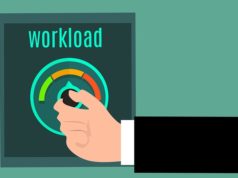
During the years I lived in Santa Barbara, I watched a weekly ritual. On Friday evening, the freeway would be clogged with northbound travelers fleeing Los Angeles for the weekend; on Sunday afternoon, the travel jam would be reversed as drivers headed south in slow motion.
Why, I often wondered, would anyone who had just spent the week sitting in traffic continue to do so on the weekend?
While many people assume that avoiding heavy traffic or crowds of any sort is not an option, the self-employed revel in their freedom to organize their time in such a way that they can operate when traffic is light or crowds nonexistent.
Some even go so far as to design a business that allows them to work in off-hours. When the rest of the world is rushing around in their nine-to-five mode, these entrepreneurs are happily ensconced at home. When the throngs settle into their offices or homes, these traffic avoiders take to the road.
If you want to lower the stress in your schedule, here are some working ways to consider that will move you out of sync with the world.
Create a weekend business.
Flea markets, craft fairs and special events are usually held on the weekend. So are weddings and other celebrations. Many entrepreneurs report that running a weekend business can be more lucrative than working a 40-hour week at a job.
On a trip to London, I chatted with a man, originally from Brooklyn, who now is a successful antiques dealer in his adopted home town. He keeps his overhead low by renting space at a flea market on weekends and uses his time during the week to write plays.
While he noted that he had to rise quite early in order to transport his goods and set up his display, he said the freedom and fun of working this way compensated for the inconvenience of getting up before dawn twice a week.
An innkeeper with a lovely old house-turned-bed-and-breakfast-hotel only opens on weekends, earning a minimum of $500 for her two day’s work. Like many off-hours business owners, she enjoys the ease of shopping and doing errands midweek.
Doing seminars on the weekends gives me the same advantages.
Schedule your work around your personal rhythms.
It may be necessary for you to conduct business during the same hours as the rest of the world, but don’t assume that’s your only option.
Your first consideration should be getting in touch with your own mind/body rhythms. You’ll soon notice the times of day when your energy drops and those when you feel most energetic. If you’re nocturnal, for instance, see how you can take advantage of that to complete some of your work.
Once you know these things, planning your work becomes easier. You’ll accomplish more if you forget about the clock and tune in to your own highs and lows.
Should you find that you’re the kind of person who thrives on working long hours for stretches of time interspersed with long hours of leisure, a seasonal business could be a perfect fit.
The important thing is to listen to your own rhythms and follow your personal clock—not the one on the wall.
Remember to take time off.
The freedom of setting your own hours, coupled with doing work you adore, can be seductive. If you don’t take a day or two off for personal time, you could find yourself working nonstop. That, of course, defeats the purpose of working an unusual schedule.
Who says a vacation needs to be two weeks long or that a weekly break last for two days? Mix things up a bit. Just remember to call a halt to your work from time to time.
Most importantly, don’t think you must conform to the working schedule of conventional businesses or even to follow the same routine day after day. Being self-employed, you are in the enviable position of being in charge of designing your own best working environment.
Working off-hours may be the best way to maximize your time, to expand your talents, to integrate the things you most care about into your daily life.
It’s also the way to march to the beat of your own different drummer.
Barbara Winter is a writer and gypsy teacher who thinks hanging out with inspired entrepreneurs is as much fun as visiting a museum.








